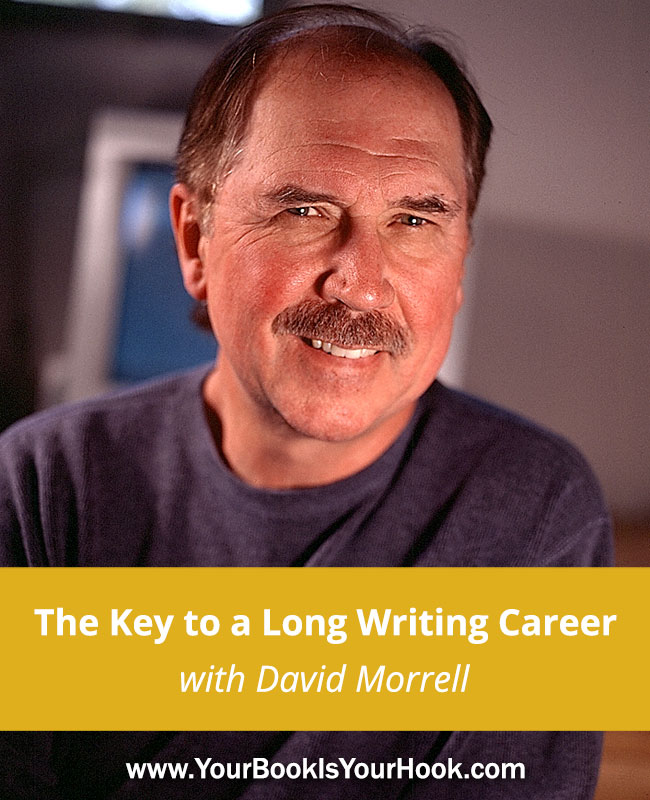
This post is by Guest Blogger, David Morrell, NY Times Best-Selling Author
The popularity of e-books began in 2009, signaling a permanent change in the publishing world. The traditional paradigm involved gatekeepers, such as agents and editors, who considered submissions and often responded with a note that basically said, “This doesn’t meet our current needs.”
Assuming that the manuscripts were acceptably written, the gatekeepers were telling the truth: there wasn’t a market for what they had read (or possibly they didn’t know how to create a market for it).
But with the creation of e-books, authors now had a major new alternative. If the gatekeepers weren’t interested, authors could self-publish their manuscripts (an easy, quick process) and make them available for e-readers, creating their own market. “Self-publish” had once been a derogatory term. All of a sudden, it didn’t have a negative connotation.
This has become a “best of times, worst of times” literary situation. On the one hand, an author need no longer ever lack a potential readership, because if all else fails, a project can be self-published digitally. We have never had greater opportunities and freedom.
On the other hand, agents and editors can provide wisdom and editorial guidance that encourages authors to improve their work. Unfortunately the efficiency with which books can be self-published tempts many authors to forego the editing and guidance process, offering readers what amount to first drafts.
In the gold-rush days, it wasn’t hard to get away with lesser standards because owners of recently created e-readers loved the novelty of pushing a button and almost instantly acquiring a book. The 99 cent prices were also hard to resist.
But four years later, the novelty has ended, and the e-book world has stabilized. The market for e-readers (whether as dedicated devices or as tablets) has reached a plateau while hundreds of thousands more e-books are being made available each year.
This increased competition leads me to the following bits of advice, based on my 41 years as a published author in which I’ve seen enormous changes.
One: Make sure that a manuscript has been as professionally edited as possible. For a while, readers might forgive shoddy craft in favor of novelty, but eventually quality endures, and a reader who got fooled once (even at a low price) might not pay to get fooled twice. When a reputation is lost, it’s very difficult to regain it.
Two: Don’t chase the market (this applies to traditional publishing also). It’s possible to have a brief period of success by taking advantage of a popular genre, but genres come and go, and if an author is associated with a genre that the author didn’t care about in the first place, that success won’t continue. Remember the positive attitude toward e-books is that it gives authors a chance to be original.
Three: There’s only one reason to be an author, and it doesn’t involve money or fame (I feel sorry for anyone with an urge to be famous). The motive should be that you have stories that you desperately need to tell and that you have a worldview and techniq ue to go with them, making your work unique. The money may or may not come, but at least you’ll have written something that you respect as opposed to trying to game the system.
ue to go with them, making your work unique. The money may or may not come, but at least you’ll have written something that you respect as opposed to trying to game the system.
Four: In my writing book, The Successful Novelist, I emphasize the following conclusion—be a first-rate version of yourself and not a second-rate version of another writer. The authors we remember and cherish are unique. That should be our goal. E-books. Printed books. The delivery system doesn’t matter. But attitude does. That’s the key to a long career.
*
David Morrell is the award-winning author of First Blood, the novel in which Rambo was created. An Edgar nominee and 3-time Stoker Award winner as well as an ITW Thriller Master, he has written numerous best-selling novels, including the classic Brotherhood of the Rose spy trilogy, the basis for the only miniseries to air after the Super Bowl. His The Successful Novelist discusses what he learned in his four-decade career. His latest novel is MURDER AS A FINE ART. Please visit his writing page at www.davidmorrell.net.
To listen to David’s interview on the show: https://wp.me/p1KmwD-6sG






